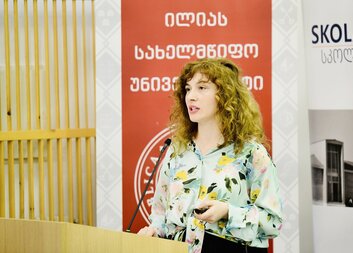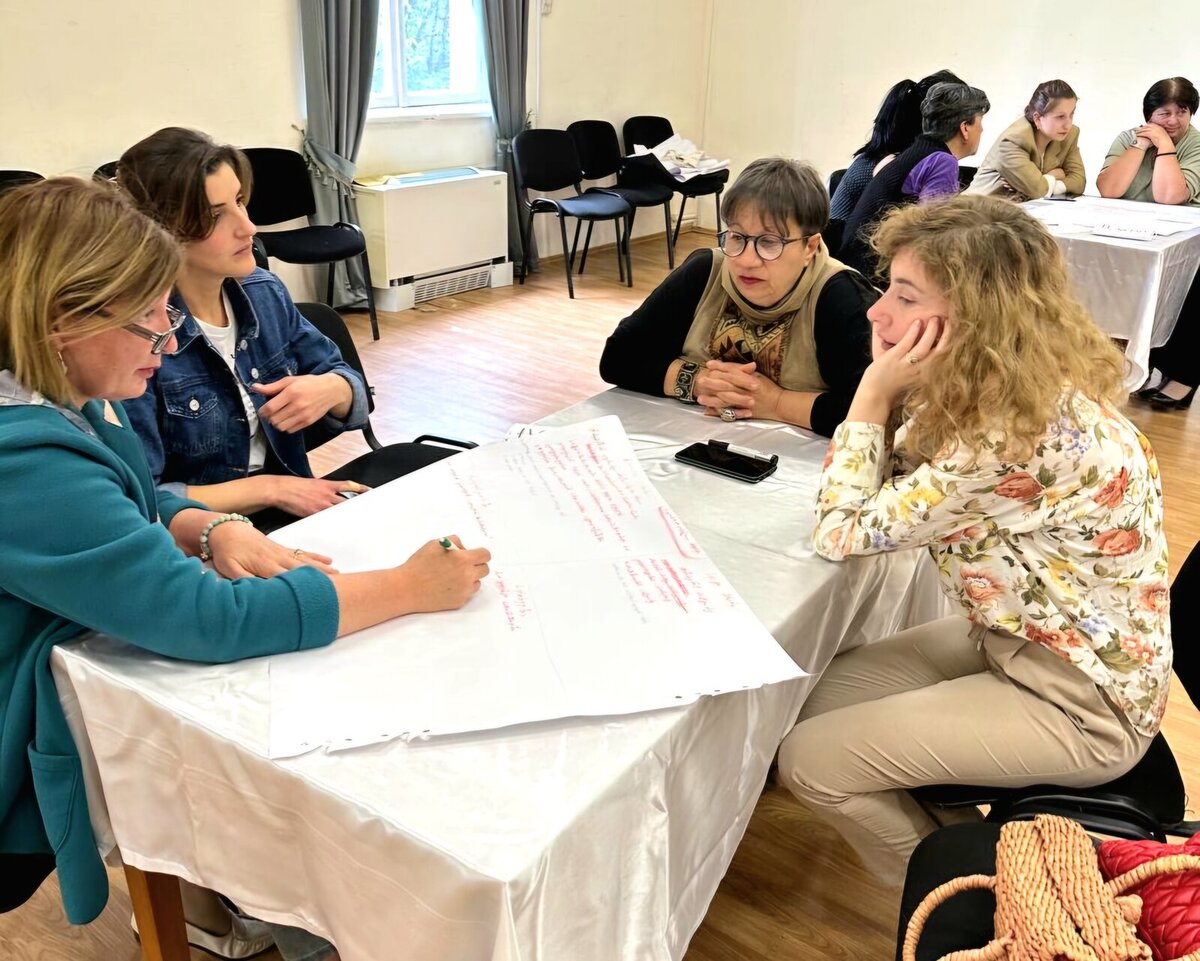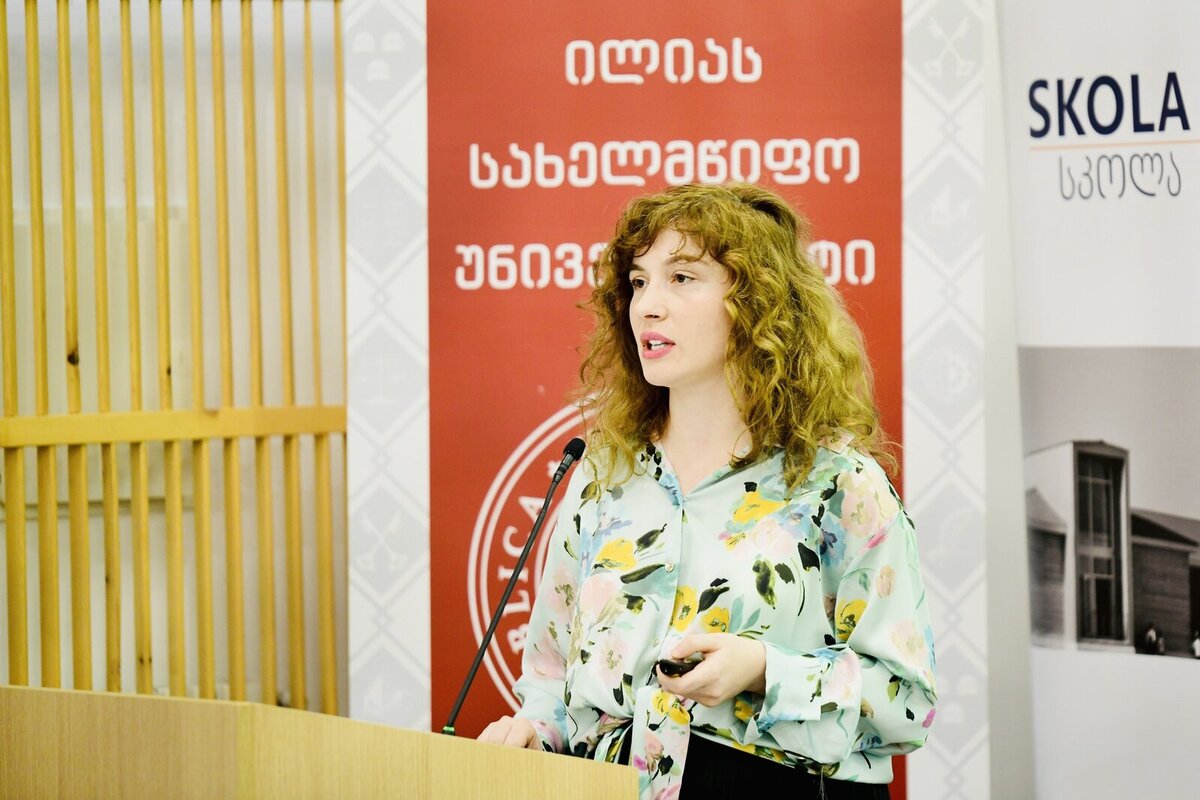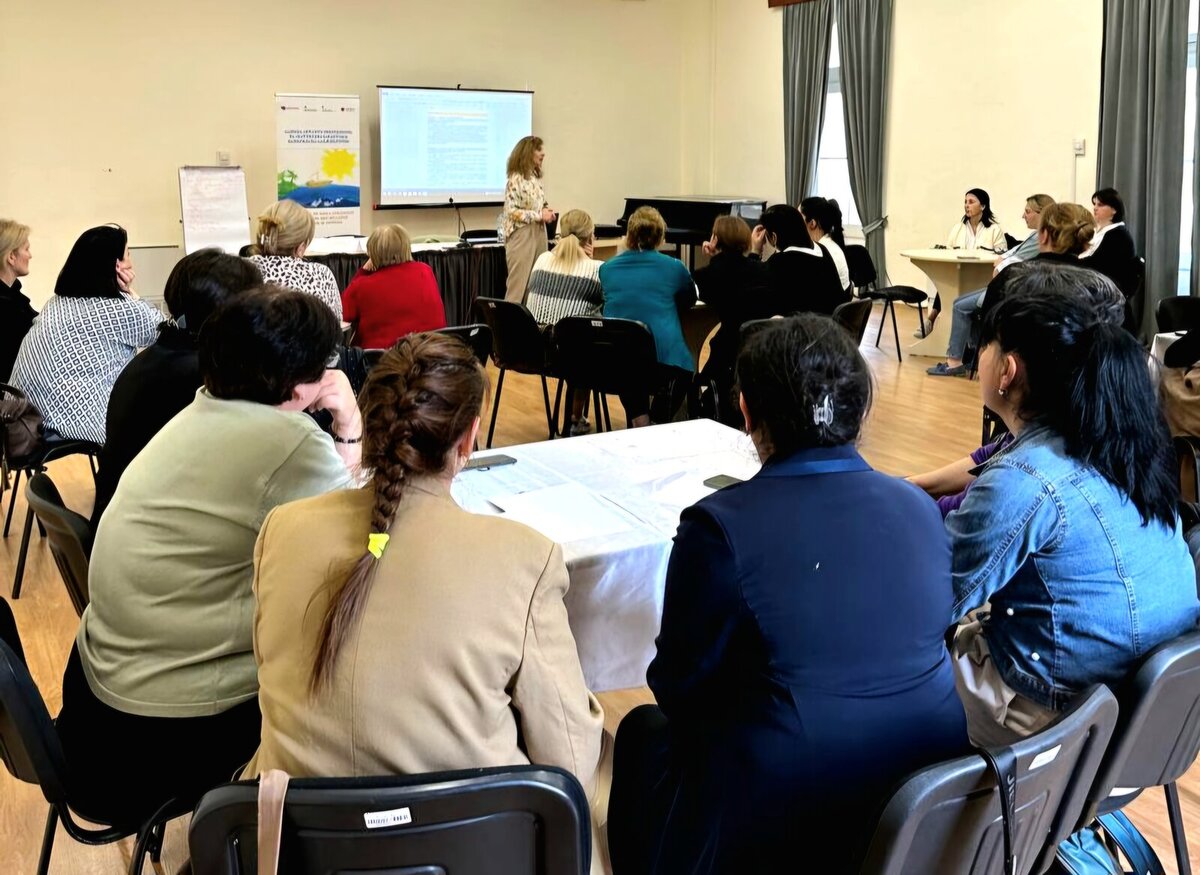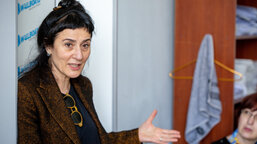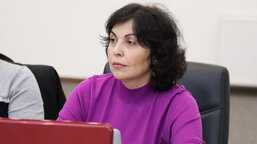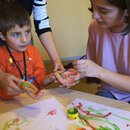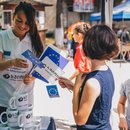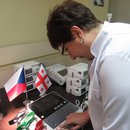Over the past decade, numerous reforms have been implemented in Georgia's education system, focusing on inclusive and quality education, particularly for children with specific requirements. These reforms have included the development and integration of inclusive curriculum and the authorization process. Despite these advancements, many challenges remain in meeting the needs of all children, especially those with specific requirements.
Reforms in kindergartens of Georgia
Caritas Czech Republic has been actively supporting the Government of Georgia in improving early childhood intervention and inclusive education services since 2023. One of their main objectives is to enhance the national policy and service provision for children of early age and primary school age, focusing on inclusive education strategies in selected municipalities.
One of the primary goals of the project is to strengthen Georgia's kindergartens and improve their services for children with specific requirements to create an inclusive environment for them. For more information about the current work, we spoke with Lika Kurtikidze, early childhood development specialist and Izolda Gorgadze, the head of the educational process management department of the association of kindergartens of the city of Rustavi.
Ms. Izolda, how important is the strengthening of municipalities in creating an appropriate environment for children with specific requirements and how are the activities envisaged by the project going on in the city of Rustavi?
Due to the concerted efforts of awareness campaigns and enhanced mechanisms for identifying children with specific requirements, there has been a consistent rise in the number of such children enrolled in kindergartens annually. Consequently, fostering an inclusive environment within preschool institutions has become paramount. Recognizing our crucial role in inclusive education, planning, and execution, we have been looking for ways and means to improve inclusive education in kindergartens.
Our engagement with the Caritas Czech Republic project proved pivotal in formulating an inclusive education strategy tailored for preschool institutions. This strategy focused on fostering inclusion, supporting children with specific requirements, and engaging their parents effectively.
It was quite productive to create a working group that developed strategic and action plans. The one-year action plan defined specific goals, objectives, activities, indicators and deadlines.This roadmap facilitates a systematic progression towards inclusive education, enhancing the competencies of staff engaged in preschool institutions. Support from project-affiliated mentors, particularly those involved with pilot gardens, further enriched our staff's expertise through practical demonstrations and insightful recommendations.
With the project's duration set at one year, we anticipate that our endeavors will elevate the standard of inclusive education in Rustavi's preschool institutions to a commendable level. This advancement is envisioned to serve as a hallmark of quality early and preschool education, fostering an environment conducive to every child's development and enhancing the kindergarten authorization process.
Ms. Lika, what is the main goal of the kindergarten component of the project and what exactly is being done to achieve this goal?
We can consider the kindergarten component of the project in two major directions. One direction is focused on the professional development of kindergarten staff – educators and inclusive education support staff, special teachers, communication, language and speech specialists, and psychologists – while the second direction is focused on strengthening kindergarten associations in municipalities.
To bolster inclusive education in targeted municipalities and kindergartens, we initiated training sessions for educators and inclusion support staff. Recognizing the limitations of theoretical training alone, our approach extends beyond the classroom. Following training, we provide hands-on support and supervision within the kindergartens, facilitated by trainers from Ilia State University. This coaching and mentoring process enhances practical skills, ensuring educators are well-equipped to address real-world challenges and support their colleagues effectively.
Additionally, in collaboration with the union of participating municipalities, we undertook strategic planning to develop a comprehensive five-year strategy and action plan aimed at enhancing the quality of inclusive education. The overarching goal of this plan is to foster positive and development-oriented approaches within preschool institutions. Key focus areas include enhancing practitioner competencies, fostering collaboration among stakeholders, optimizing resource allocation within kindergartens, and more.
Early in the process, we engaged kindergarten staff and parents, along with municipal representatives, to identify needs and areas for improvement. This collaborative effort informed the formulation of concrete objectives, empowering municipalities to take meaningful steps toward enhancing early inclusive education.
Which municipalities are included in the kindergarten component of the project?
The kindergarten component of the project encompasses several municipalities, including Dusheti, Rustavi, and Tbilisi, initially, with the addition of Chiaturi and Gardabani in the second phase.
These specific locations were chosen due to their involvement in the early development sub-program, a vital component of the state program for social rehabilitation and child care. The Early Development Subprogram offers crucial early intervention services tailored for children aged birth to 7 years, particularly those with developmental disabilities or those at risk of such conditions.
Within the framework of the project, it is planned to create or add early intervention services in these regions and cities. By supporting inclusive education in kindergartens and implementing early development programs, a comprehensive approach to the advancement of children with specific requirements needs is fostered. This initiative creates a platform to integrate vital services for children under six, such as kindergarten and intervention programs, facilitating collaborative efforts to enhance child development.
Moreover, the project facilitates the collaboration of specialists involved in child development, addressing a common challenge faced by children transitioning from early development services to kindergarten. When both early education and intervention programs are aligned, coordination among specialists becomes more streamlined, positively impacting the child's engagement and progress.
Why is strategic planning important for quality and inclusive early education?
In addition to the fact that having an inclusive education strategy is a statutory obligation for municipalities, its development is critical to making consistent, rational and effective steps towards quality early childhood education.
A strategic plan serves as a crucial tool for municipalities to assess their capabilities, set objectives, manage resources, and continually enhance quality. While aimed at protecting designated kindergartens, the planning and execution of the plan are primarily facilitated by kindergarten associations to fulfill outlined obligations.
The strategic planning process in municipalities follows a consistent methodology, despite varying challenges in inclusive preschool education across regions. It typically involves forming a strategy team, conducting self-assessment to identify strengths and areas for improvement, and developing strategic goals along with corresponding one-year action plans.
Throughout this process, active involvement of kindergarten staff fosters cooperative relations and facilitates role redistribution. In Rustavi, for instance, approximately 40 individuals, including kindergarten managers, special teachers, methodologists, educators, and importantly, parents, participated in discussions to refine the strategy. This multi-stakeholder engagement ensures that strategic activities are meaningful, valuable, and realistically achievable.

